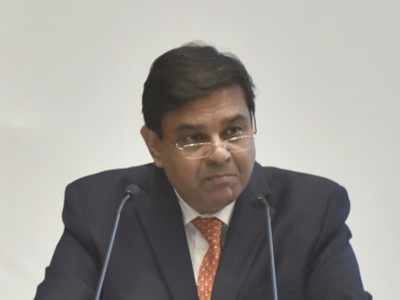
[ad_1]

File photo
MUMBAI: Former Reserve Bank of India (RBI) governor Urjit Patel has said that differences with the then finance minister began with the government’s decision to softpedal the approach toward insolvency cases.
While Patel has not mentioned any names in his new book, the mid-2018 period that he refers to is the time when Piyush Goyal held temporary charge of the Union finance ministry between May and August 2018. “In mid-2018, instead of buttressing and future-proofing the gains so far, an atmosphere to go easy on the pe dal ensued…Until then, for the most part, the finance minister and I were on the same page with frequent conversation on enhancing the landmark legislation’s operational efficiency,” writes Patel in his book.
In May 2018, Arun Jaitley who as finance minister spearheaded the insolvency law was recuperating from an ailment and Goyal, then power minister, was given additional charge. In media interactions in 2018 Goyal had called for the circular’s dilution stating that “loans cannot be arithmetically classified as NPA after 90 days”.
Patel, who resigned eight months before the end of his term, faced the rare threat of the government invoking a never-used provision to issue a directive to RBI. During his stint on Mint Street there was a breakdown of communication with the finance ministry even after Jaitley returned to office. There is, however, no reference to the relationship between the RBI and its board or the finance ministry in Patel’s book.
‘Overdraft — saving the Indian saver’ is not a tell-all book and demonetisation, which was cleared by the RBI’s board under Patel’s watch, does not find a mention anywhere.
Patel, whose clean-up of bank books resulted in the unearthing of over Rs 10 lakh crore of bad loans, has called for continued vigilance pointing out that “restructured standard assets” are an oxymoron.
In his book, the RBI’s 24th governor has identified the financial sector’s problem as the preponderance of government in ownership, resource mobilization and directed lending. He has warned against reducing the “length of arm” between the government and public sector banks as this would greatly increase the government’s debt burden.
Describing the government initiated SBI-LIC fund to bail out stressed real estate projects as a scheme in the “smoke and mirrors” genre, Patel expresses worry that the Centre’s quick-disbursing Mudra credit scheme has been more akin to transfers.
Patel minces no words while cautioning against the flexible approach taken by the government (in his words “extend and pretend”) to address chronic problems. He describes the past approach of getting PSU banks to subscribe in each other’s tier-II bonds as akin to “rearranging the deck chairs on the Titanic”. He is critical of LIC’s purchase of IDBI Bank (announced in August 2018).
[ad_2]
Source link